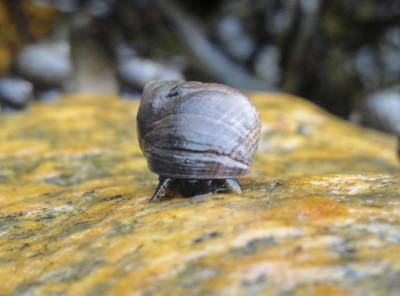
Plastic has been found throughout the world’s seas, with pieces showing up everywhere from Arctic sea ice to the bottom of the Mariana Trench. Often its harmful effects are obvious, marine creatures from fish to seabirds and from turtles to seals perish by mistakenly ingesting large quantities of plastic rubbish or getting entangled in larger pieces of plastic-like discarded fishing nets.
But now researchers have found that microplastics can even affect an animal’s ability to protect itself from a predator. The common periwinkle (Littorina littorea) is a main food source for crabs. Usually the snails evade predator crabs by withdrawing into their shells or hiding under rocks. But in water saturated with tiny plastic pellets, the snails failed to pick up vital chemical signals drifting their way in the water from crabs. They were slow to withdraw into their shells and didn’t wait as long as they should have before re-emerging.
Picture Credit : Google




